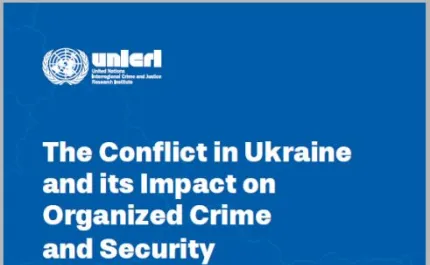
03 Nov 2022
This report assesses the impact of the conflict in Ukraine and its implications for organized crime and security-related issues for neighbouring countries, with a focus on Moldova.
These include:
UNICRI’s publications offer insights from cutting-edge research, tailored to global and context-specific needs, providing evidence-based analysis to inform policymaking and build advanced capacities.
Addressing topics such as violent extremism, organised crime, cybersecurity, CBRN risk mitigation, artificial intelligence, environmental crimes, gender issues, disinformation, illicit financial flows, and justice reform, these studies foster collaboration and advance sustainable solutions for peace, equality, and development. Explore our collection to stay informed and inspired.
Through our publications, we aim to deepen knowledge, foster collaboration, and drive forward sustainable solutions that promote justice, peace, security, accountability, equality, and development. Whether you are a policymaker, researcher, or practitioner, UNICRI’s publications serve as a trusted resource to inspire informed action and meaningful impact. Explore our collection to stay at the forefront of global and local security challenges.

03 Nov 2022
This report assesses the impact of the conflict in Ukraine and its implications for organized crime and security-related issues for neighbouring countries, with a focus on Moldova.
These include:
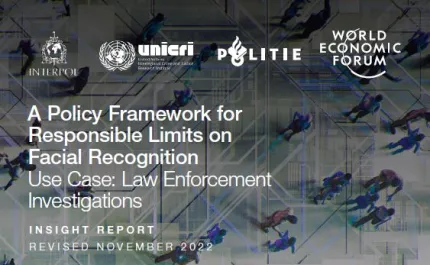
03 Nov 2022
The World Economic Forum, in partnership with the International Criminal Police Organization (INTERPOL), the United Nations Interregional Crime and Justice Research Institute (UNICRI), and the Netherlands police, published A Policy Framework for Responsible Limits on Facial Recognition Technology, Use Case: Law Enforcement Investigations.
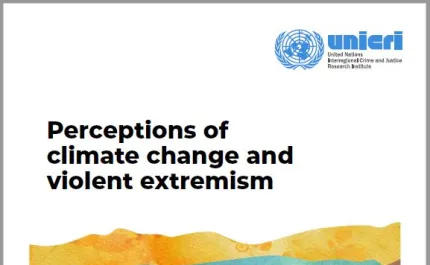
31 Oct 2022
The report Perceptions of climate change and violent extremism: Listening to local communities in Chad has been produced by the United Nations Interregional Crime and Justice Research Institute (UNICRI) in partnership with SWISSAID.
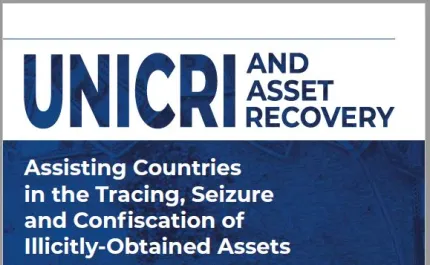
28 Oct 2022
This brochure presents an overview of the Programme on Asset Recovery and Illicit Financial Flows implemented by UNICRI. The Institute has over 25 years of experience in helping countries in their effort of tracing, freezing, seizing and confiscating illicitly obtained assets - including high-profile cultural assets.
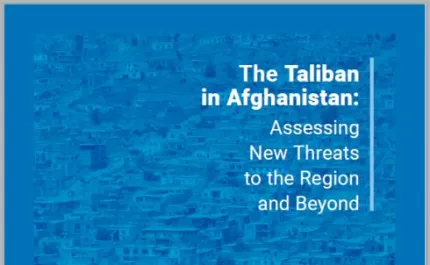
25 Oct 2022
This brief threat assessment report by UNICRI aims to analyse and assess the recent developments in Afghanistan and their broader implications on the security context at the domestic, regional, and international levels.

03 Nov 2022
This report assesses the impact of the conflict in Ukraine and its implications for organized crime and security-related issues for neighbouring countries, with a focus on Moldova.
These include:

03 Nov 2022
The World Economic Forum, in partnership with the International Criminal Police Organization (INTERPOL), the United Nations Interregional Crime and Justice Research Institute (UNICRI), and the Netherlands police, published A Policy Framework for Responsible Limits on Facial Recognition Technology, Use Case: Law Enforcement Investigations.

31 Oct 2022
The report Perceptions of climate change and violent extremism: Listening to local communities in Chad has been produced by the United Nations Interregional Crime and Justice Research Institute (UNICRI) in partnership with SWISSAID.

28 Oct 2022
This brochure presents an overview of the Programme on Asset Recovery and Illicit Financial Flows implemented by UNICRI. The Institute has over 25 years of experience in helping countries in their effort of tracing, freezing, seizing and confiscating illicitly obtained assets - including high-profile cultural assets.

25 Oct 2022
This brief threat assessment report by UNICRI aims to analyse and assess the recent developments in Afghanistan and their broader implications on the security context at the domestic, regional, and international levels.

03 Nov 2022
This report assesses the impact of the conflict in Ukraine and its implications for organized crime and security-related issues for neighbouring countries, with a focus on Moldova.
These include:

03 Nov 2022
The World Economic Forum, in partnership with the International Criminal Police Organization (INTERPOL), the United Nations Interregional Crime and Justice Research Institute (UNICRI), and the Netherlands police, published A Policy Framework for Responsible Limits on Facial Recognition Technology, Use Case: Law Enforcement Investigations.

31 Oct 2022
The report Perceptions of climate change and violent extremism: Listening to local communities in Chad has been produced by the United Nations Interregional Crime and Justice Research Institute (UNICRI) in partnership with SWISSAID.

28 Oct 2022
This brochure presents an overview of the Programme on Asset Recovery and Illicit Financial Flows implemented by UNICRI. The Institute has over 25 years of experience in helping countries in their effort of tracing, freezing, seizing and confiscating illicitly obtained assets - including high-profile cultural assets.

25 Oct 2022
This brief threat assessment report by UNICRI aims to analyse and assess the recent developments in Afghanistan and their broader implications on the security context at the domestic, regional, and international levels.

03 Nov 2022
This report assesses the impact of the conflict in Ukraine and its implications for organized crime and security-related issues for neighbouring countries, with a focus on Moldova.
These include:

03 Nov 2022
The World Economic Forum, in partnership with the International Criminal Police Organization (INTERPOL), the United Nations Interregional Crime and Justice Research Institute (UNICRI), and the Netherlands police, published A Policy Framework for Responsible Limits on Facial Recognition Technology, Use Case: Law Enforcement Investigations.

31 Oct 2022
The report Perceptions of climate change and violent extremism: Listening to local communities in Chad has been produced by the United Nations Interregional Crime and Justice Research Institute (UNICRI) in partnership with SWISSAID.

28 Oct 2022
This brochure presents an overview of the Programme on Asset Recovery and Illicit Financial Flows implemented by UNICRI. The Institute has over 25 years of experience in helping countries in their effort of tracing, freezing, seizing and confiscating illicitly obtained assets - including high-profile cultural assets.

25 Oct 2022
This brief threat assessment report by UNICRI aims to analyse and assess the recent developments in Afghanistan and their broader implications on the security context at the domestic, regional, and international levels.